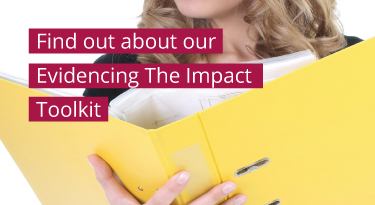These curriculum guidelines build on the original document An Adult Literacy and Numeracy Curriculum Framework for Scotland 1 (ALN Curriculum Framework), which was published in 2004, three years after the launch of Scotland’s first adult literacies strategy, Adult Literacy and Numeracy in Scotland 2 (ALNIS).
This page will provide an overview of the official document, summarising the key points.
Introduction
In 2010 the Scottish Government launched a refreshed strategy for adult literacies: Adult Literacies in Scotland 2020: strategic guidance 3 (ALIS 2020). This policy sought to build on ALNIS by setting out ‘shared priorities’ for Scotland to achieve its vision of improving adults’ literary capabilities.
ALIS 2020 identifies four key themes that stakeholders agreed should have priority. Those themes are:
Section A: Learning, teaching and assessment
This section presents the principles that underpin adult literacies practice. It outlines research evidence that shows what makes for effective adult literacies practice, and describes the five stages of the adult literacies learning cycle. It ends with a description of different modes of adult literacies practice.
The five key principles are as follows:
The ‘learning cycle’ is a well-known way of understanding the cyclical processes involved in learning. In its simplest form it involves: planning, learning, reflecting and reviewing.
The adult literacies learning cycle follows a
number of stages:

For a more in-depth look at this cycle, refer to page 15 of the document.
Section B: Settings and themes
Settings
Throughout Scotland literacies learning is delivered by organisations in the public, voluntary and private sectors. These organisations often work in partnership to develop and deliver opportunities in their specific contexts and settings. Literacies learning is delivered by local authority community learning services, voluntary organisations, youth organisations, prisons, colleges, unions, employers, and independent training providers. It takes place in a range of settings, including community centres, libraries, colleges, prison learning centres, and workplaces.
Literacies provision is diverse, with providers in rural and remote settings often having different approaches to working with learners. For example, in rural settings, one-to-one tuition is often widespread.
In addition, learners themselves are diverse, with unique interests, aspirations and needs, and provision should be adaptable and responsive to any learner who comes through the door. Learners in one setting will have similar and different learning needs to those in other settings. It is therefore particularly important to carry out thorough, personalised initial assessments with learners, which lead to the planning of measurable goals.
Themes
ALIS 2020 focuses on the themes of literacies for employability and work, literacies and financial capability, literacies and families, and literacies and health. It also draws particular attention to literacies learning for particular groups: for example, for offenders and ex-offenders, for people with specific learning difficulties, and for learners whose first language is not English.
Section C: Developing your professional practice
OECD (2008) research on teaching, learning and assessment for adults highlighted the complex skills and qualities required of adult literacies practitioners:
‘Instructors need strong subject-matter and pedagogical expertise and skills in assessment, as well as softer skills, such as humour, patience, flexibility, and empathy.’
A professional development framework for Scotland’s adult literacies workforce 40 (the ALPDF) sets out three ‘typical’ roles that practitioners occupy (recognising that they will often occupy more than one of these roles at any given time). The three roles are:
The ALPDF suggests relevant professional development opportunities (formal and informal) for each of the three roles, so that practitioners and their employers can identify and prioritise professional development opportunities. The ALPDF aims to enable practitioners to progress within and beyond adult literacies work.
For a full understanding of the Adult Literacy Curriculum Framework, please refer to this document.


The Subscriber form is available as a Word document. The form is very brief and won't take much time at all.
“LLS have a very professional approach to training & Learning, which I have shared with others internally and externally.”
Elaine Webser, Scottish Language Dictionaries
“It feels good to be belong to Learning link and I look forward to other events and to making use of your materials.”
Delegate, Annual Conference
“Our vision for Scotland is for a learning nation where Scotland is not only the best place in the world to grow up in but also the best place to learn.”
Learning Link Scotland